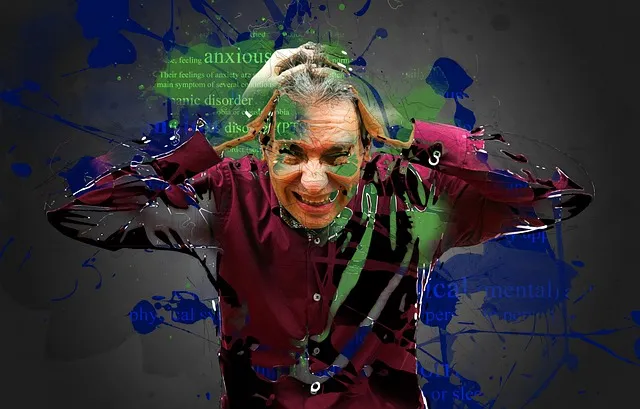The Kaiser Permanente mental health appointment center in Centennial tackles stigma, a significant barrier to mental wellness care, through various initiatives. These include educational workshops, podcasts, and media campaigns that dispel myths, foster empathy, and promote open conversations. By normalizing mental health discussions and depicting diverse experiences, they aim to improve access to care, community outcomes, and reduce stigma not just in Centennial but across the region. Evaluating these efforts through patient feedback, attendance rates, and changes in help-seeking behaviors ensures their ongoing success.
Stigma surrounding mental illness remains a significant barrier to access and treatment, with profound implications for individual well-being. This article explores strategies employed by organizations like Kaiser Permanente’s Mental Health Appointment Center in Centennial to combat this pervasive issue. We delve into their community engagement initiatives, media representation approaches, and environmental design, examining how these efforts shape public perception and foster a more supportive environment for those seeking mental health care.
- Understanding the Impact of Stigma on Mental Health Care at Kaiser Permanente Centennial
- Strategies for Community Engagement and Education in Reducing Stigma
- The Role of Media Representation in Shaping Public Perception
- Kaiser Permanente's Approach to Creating a Supportive Environment
- Measuring Success: Evaluating the Effectiveness of Stigma Reduction Efforts
Understanding the Impact of Stigma on Mental Health Care at Kaiser Permanente Centennial

At Kaiser Permanente Centennial, the impact of stigma on mental health care is a critical area of focus. Stigma often acts as a significant barrier to individuals seeking help for their mental wellness at venues like the Kaiser Permanente mental health appointment center Centennial. This can lead to delayed access to care, untreated conditions, and even avoidance of essential mental health services. The consequences are far-reaching, affecting not just individual well-being but also community mental health outcomes.
Efforts to reduce stigma are crucial in fostering a more supportive environment for mental health treatment. Initiatives such as the Kaiser Permanente Mental Wellness Podcast Series Production aim to promote understanding and positive thinking through education and storytelling. By addressing misconceptions and breaking down barriers, these efforts can encourage more open conversations about mental health, ultimately leading to improved access and outcomes for those facing challenges at the Kaiser Permanente mental health appointment center Centennial and beyond.
Strategies for Community Engagement and Education in Reducing Stigma

Community engagement is a powerful tool to reduce mental illness stigma. Organizations like Kaiser Permanente’s mental health appointment centers in Centennial play a pivotal role by hosting educational workshops, panel discussions, and awareness campaigns. These initiatives bring together community members, healthcare professionals, and individuals living with mental health conditions to foster open conversations about mental wellness. By sharing personal stories and experiences, participants can dispel myths and misconceptions surrounding mental illness, promoting empathy and understanding.
In addition to these events, leveraging resources like the Emotional Healing Processes and Emotional Intelligence workshops can empower community members to recognize and support those struggling. The Mental Wellness Podcast Series Production is another innovative approach, offering accessible platforms to share insights on mental health, coping strategies, and recovery journeys, further contributing to a more inclusive and supportive community environment.
The Role of Media Representation in Shaping Public Perception

The media plays a significant role in shaping public perceptions about mental illness, often influencing how society understands and treats individuals dealing with psychological struggles. In recent years, there has been a positive shift in media representation, with more diverse and accurate portrayals of mental health issues. This change is crucial in reducing the stigma surrounding mental illness, as it helps to normalize these experiences and promotes empathy among the public. For instance, platforms like Kaiser Permanente’s mental health appointment centers in Centennial have utilized this trend by sharing relatable stories and highlighting the importance of seeking help, thereby encouraging open conversations about mental wellness.
By depicting characters with various mental health conditions in movies, television shows, and news media, the public gains a better understanding of the diversity within mental illness. This representation goes beyond simply showcasing depression or anxiety; it explores complex narratives, challenging stereotypes, and promoting Mental Health Awareness. Additionally, incorporating characters practicing Mindfulness Meditation or discussing Burnout Prevention can offer practical insights into coping mechanisms, further destigmatizing self-care initiatives.
Kaiser Permanente's Approach to Creating a Supportive Environment

Kaiser Permanente has taken significant strides in reducing mental illness stigma through its comprehensive approach to creating a supportive environment at its Mental Health Appointment Centers, including the one located in Centennial. They prioritize patient-centered care, ensuring individuals feel understood and respected from the moment they walk in. The organization employs trained professionals who use evidence-based practices and offer various resources tailored to each person’s unique needs.
One notable strategy is their emphasis on mental wellness journaling exercises and communication strategies. These tools empower patients to track their progress, express their feelings, and open up about experiences that might otherwise remain unspoken. Additionally, Kaiser Permanente has initiated a mental wellness podcast series production, providing accessible platforms for sharing stories, insights, and expert advice related to mental health. Such efforts contribute to fostering an inclusive atmosphere where conversations around mental wellness are normalized and encouraged.
Measuring Success: Evaluating the Effectiveness of Stigma Reduction Efforts

Evaluating the success of stigma reduction efforts is a crucial step in understanding their true impact and guiding future initiatives. At Kaiser Permanente’s mental health appointment center in Centennial, success is measured through a multi-faceted approach. This includes qualitative assessments like patient feedback and provider observations, capturing the lived experiences and perceptions surrounding mental health care. Quantitative data, such as attendance rates at support groups or participation in education programs, also plays a vital role.
The effectiveness of these efforts can be further assessed by tracking changes in help-seeking behaviors and treatment outcomes. For instance, an increase in the number of individuals seeking mental health appointments without fear of judgment could indicate reduced stigma. Similarly, improvements in depression prevention programs, as measured by reduced rates of depressive symptoms over time, demonstrate the positive impact on mental wellness. Crisis intervention guidance, a key component of these efforts, can be evaluated through the success of immediate de-escalation strategies and their long-term contribution to fostering a more supportive environment for those dealing with mental health challenges.
Stigma reduction efforts play a pivotal role in improving access to mental healthcare, as demonstrated by Kaiser Permanente’s initiatives at their Centennial mental health appointment center. By engaging communities through education and fostering positive media representation, these strategies create a more supportive environment. Measuring the effectiveness of these efforts is crucial for ongoing improvement. Through collaborative approaches that combine community involvement, sensitive media portrayal, and organizational commitment, such as those employed by Kaiser Permanente Centennial, significant progress can be made in destigmatizing mental illness.






